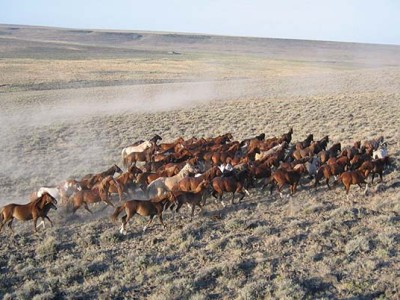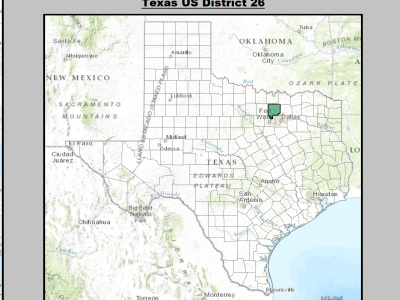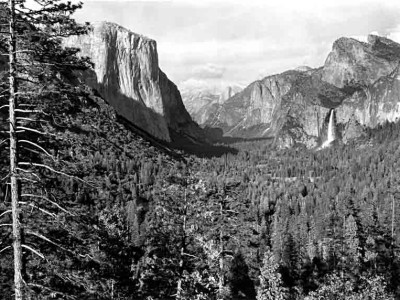Month: July 2014
A win for EPA on mountaintop removal
D.C. Circuit upholds Enhanced Coordination Process, refuses to review agency guidance
The D.C. Circuit has rejected a challenge to consultation procedures developed by the EPA and Corps of Engineers for reviewing mountaintop removal mining permits and to EPA’s guidance for reviewing permits issued by the Corps or state permitting agencies. Because it rests on standard administrative law, the decision shouldn’t merit comment. But it does, because …
Continue reading “A win for EPA on mountaintop removal”
CONTINUE READINGWild horses and the goals of nature protection
A petition to list wild horses as endangered or threatened highlights questions about what our conservation laws should protect
Friends of Animals and The Cloud Foundation have filed a petition seeking listing of the wild horse in the American west as an endangered or threatened species. Given that, according to the petition itself, there are currently some 34,000 wild horses on public lands in the west (with other estimates closer to 50,000), listing …
Continue reading “Wild horses and the goals of nature protection”
CONTINUE READINGNorth Dallas Forty
A North Dallas Representative sponsored the House bill to save inefficient light bulbs — but he also advocates energy efficiency.
Yet again, House Republicans have passed a ban on enforcing efficiency regulations for light bulbs, taking a brave stance in favor of energy wastage. The amendment bans DOE from spending any money to enforce the restrictions. They’ve done this repeatedly, for reasons that seem to have more to do with talk radio than with any actual …
Continue reading “North Dallas Forty”
CONTINUE READINGThe Wilderness Act and climate change
Changing the Wilderness Act to respond to climate change is a terrible idea
The Wilderness Act is one of the iconic pieces of environmental legislation, and it is 50 years old this year. It created a process and management standard by which millions of acres of relatively undeveloped federal land were protected from development and most forms of active human management. These lands are to be managed, as …
Continue reading “The Wilderness Act and climate change”
CONTINUE READINGBan the Quad?
The grassy Quad is emblematic of university life. But its days may be numbered.
When I picture a university, I immediately envision the quad: an area of grass and trees surrounded by campus buildings, like the photo from one of America’s oldest universities accompanying this post. But those beautiful lawns may need to go. That would be a bit sad, and not just because the students could lose a place to …
Continue reading “Ban the Quad?”
CONTINUE READINGSolar power in North Carolina
How the solar industry became successful in North Carolina
When it comes to politics, North Carolina is not California. California is regularly and consistently Democratic at the state and national level. North Carolina is a swing state in presidential elections, has a Republican majority in its delegation to the House of Representatives, and has a state government currently dominated by Republicans. And when it …
Continue reading “Solar power in North Carolina”
CONTINUE READINGCommemorating the Yosemite Grant Act
150 years ago, Yosemite Valley was set aside for public use and recreation
We’re a little bit late on this one, but can’t let it pass completely unacknowledged. And actually the timing is perfect — when better to commemorate the national parks, famously called by Wallace Stegner (and later Ken Burns) “America’s best idea” then on Fourth of July weekend? 150 years ago this week, President Lincoln signed …
Continue reading “Commemorating the Yosemite Grant Act”
CONTINUE READINGThe Role of Permits in the Regulatory State
The structure of permitting programs can make a big difference for the implementation of environmental law
Author’s Note: The following post is co-authored by Eric Biber and J.B. Ruhl, the David Daniels Allen Distinguished Chair of Law and the Co-Director of the Energy, Environment, and Land Use Program at Vanderbilt Law School. This post is cross-posted at Reg Blog. Reg Blog, supported by the U Penn Program on Regulation is an …
Continue reading “The Role of Permits in the Regulatory State”
CONTINUE READINGWhose Benefits Count?
EPA is right to include climate impacts on foreign countries in its cost-benefit analysis of regulations.
When a regulation benefits people outside the U.S., should those benefits be counted? Or should a cost-benefit analysis include only positive and negative domestic impacts? As a recent paper by Ted Gayer and Kip Viscusi highlights, EPA has been counting the benefits of restricting carbon emissions for the entire world, not just the U.S. …
Continue reading “Whose Benefits Count?”
CONTINUE READING









